Super Cool Countertop Options
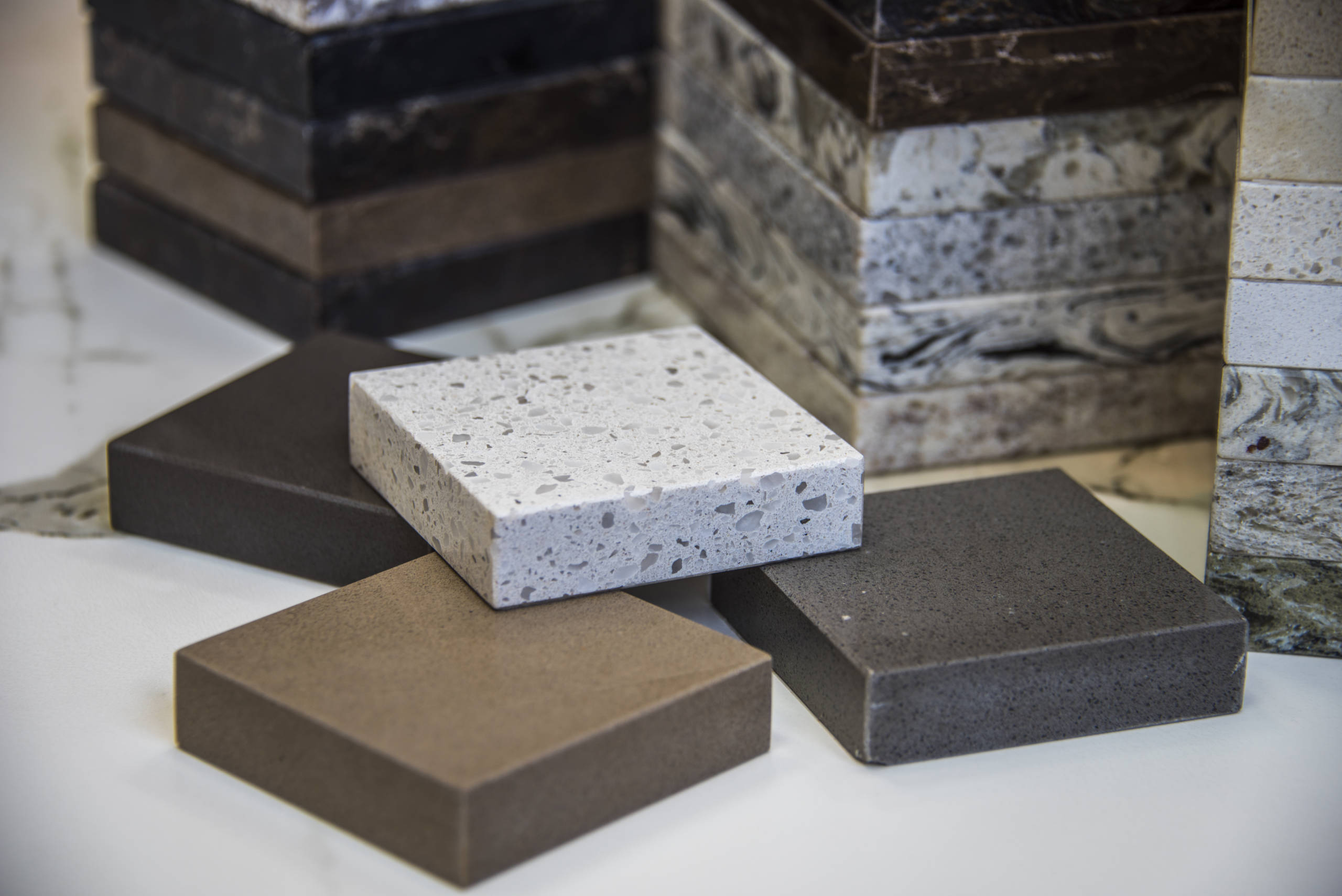
Countertops occupy so much square footage in your kitchen that upon entering, the first and most impactful thing you see is a swath of granite, onyx, engineered stone, stained concrete, or some other (don’t make me say laminate) material. And the variety of choices – even within each category – have a menu of pros and cons, and of course costs – both for the materials and installation. And of course there are DIY options, but which might be right for you? Take a look at find your favorites!
Durability and Maintenance
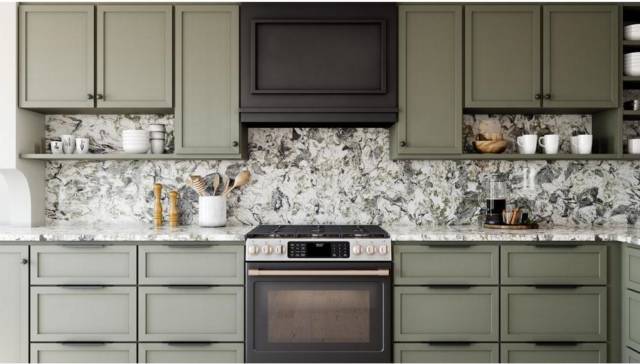 Quartz countertops are ultra-durable, and many come with a lifetime warranty. As an engineered product, quartz has more color choices than natural stones like marble and granite and they’re more forgiving of mishaps and won’t chip or crack as easily. Also, because the surface of quartz is non-porous, it resists staining better than granite, marble or concrete, and you can be confident that when you clean quartz counters – you won’t leave a petri dish of bacteria or viruses.
Quartz countertops are ultra-durable, and many come with a lifetime warranty. As an engineered product, quartz has more color choices than natural stones like marble and granite and they’re more forgiving of mishaps and won’t chip or crack as easily. Also, because the surface of quartz is non-porous, it resists staining better than granite, marble or concrete, and you can be confident that when you clean quartz counters – you won’t leave a petri dish of bacteria or viruses.
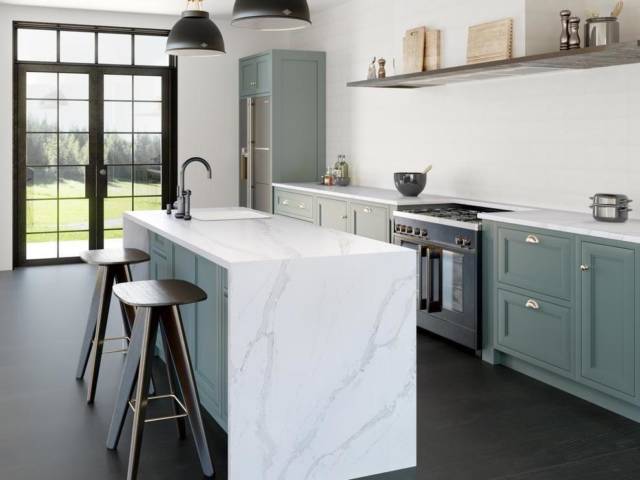 The only downside to engineered stone may be the price. Quartz can run $115-$200 per square foot so in a cost assessment, is more comparable to other high-end materials like granite or marble.
The only downside to engineered stone may be the price. Quartz can run $115-$200 per square foot so in a cost assessment, is more comparable to other high-end materials like granite or marble.
Concrete is an entirely different look from materials like stone, granite or marble and with the new colorizing and staining techniques, its appeal is growing. If you’re imagining a cement slab like your basement floor before it was finished, you’ve got the wrong picture in your head. With pigmented concrete, you can have nearly any shade imaginable. And with staining, you can apply the look of granite or whatever other stone you prefer. Skilled installers can even embed tile, stone, glass, and other materials in the concrete to make it unique, artistic and personal to you.
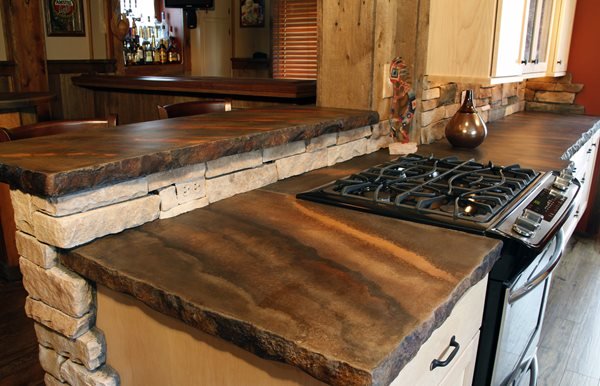 According to Concrete Network, the cost for concrete countertops ranges from $65 to $135 per square foot which usually includes the countertop design, materials, construction, and installation. Unlike other options, the cost of a concrete countertop is not in the material, but rather in the artisan’s skill and creativity. Surface Concepts is one such local artisan, which constructs beautiful specialty projects for counters, fire pits, outdoor kitchens and more. Its portfolio of completed projects includes handcrafted sinks and counters for kitchens, bathrooms and powder rooms, too.
According to Concrete Network, the cost for concrete countertops ranges from $65 to $135 per square foot which usually includes the countertop design, materials, construction, and installation. Unlike other options, the cost of a concrete countertop is not in the material, but rather in the artisan’s skill and creativity. Surface Concepts is one such local artisan, which constructs beautiful specialty projects for counters, fire pits, outdoor kitchens and more. Its portfolio of completed projects includes handcrafted sinks and counters for kitchens, bathrooms and powder rooms, too.
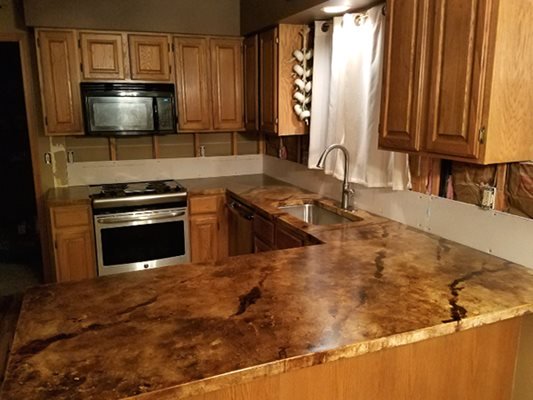 Country Living offers a pro and con summary of concrete counters that we found amusing and informative. Here is the Cliff Notes® version:
Country Living offers a pro and con summary of concrete counters that we found amusing and informative. Here is the Cliff Notes® version:
Pro: It’s durable – cement-and-sand is rock solid.
Con: It can crack – especially if poured in place rather than precast.
Pro: Cracks can be fixed.
Con: Concrete is susceptible to stains and scratches.
Pro: So is basically EVERYTHING else.
Great-Looking, Go-To Granite
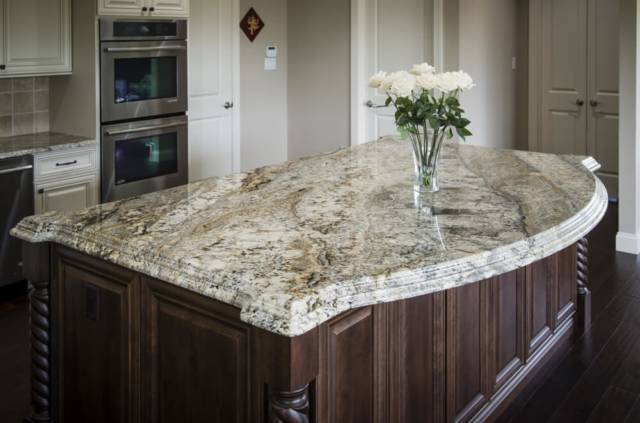 Granite is a natural stone and available in a variety of colors including white, black, brown, beige, blue and red. Granite must be carefully mined and transported to avoid damage, which makes granite the lowest-tier option in terms of sustainability. It also happens to be the least expensive material especially if you shop around, making it one of the most popular.
Granite is a natural stone and available in a variety of colors including white, black, brown, beige, blue and red. Granite must be carefully mined and transported to avoid damage, which makes granite the lowest-tier option in terms of sustainability. It also happens to be the least expensive material especially if you shop around, making it one of the most popular.
Home Advisor says you can expect to pay $2,000 to $4,500 ($3,250 on average) for granite countertop material – or $40 to $60 per square foot. Then labor runs between $35 to $85 an hour.
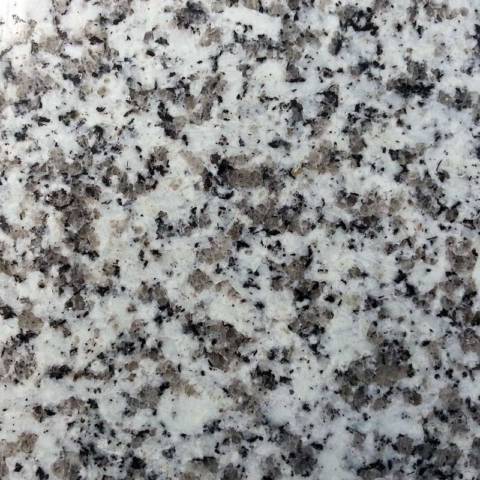 Although granite can crack, it will certainly last for decades if you don’t hit land a 747 on it, and it doesn’t scratch easily. In fact, the only material hard enough to scratch granite is another piece of granite or a diamond.
Although granite can crack, it will certainly last for decades if you don’t hit land a 747 on it, and it doesn’t scratch easily. In fact, the only material hard enough to scratch granite is another piece of granite or a diamond.
Granite is also heat-resistant which comes in handy near a range or cooktop. Placing hot pots or pans directly on your countertop won’t damage or weaken the granite – it can take the heat. And when sealed properly, granite countertops won’t absorb liquids or stain.
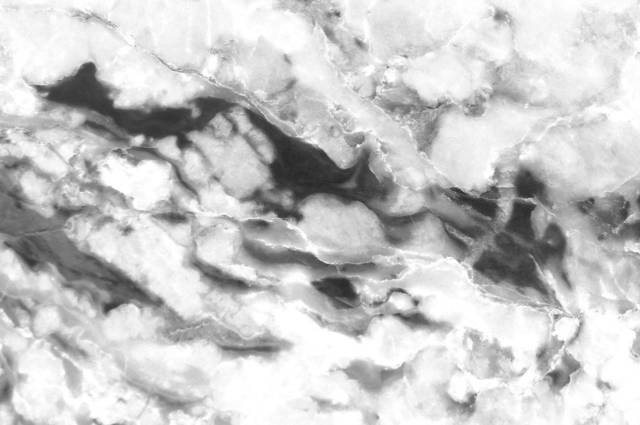 We could talk about marble, after all we live in Colorado where the city of Marble provided the stone from its quarry for lots of buildings throughout the U.S. There’s just one problem – well, three that we can see. Marble is porous, stains easily, scratches easily and in this age of low maintenance and convenience, do we really want to be sealing our countertops every six months? But if you’d like more information about the pros and cons of this beautiful, and cost-effective material before writing off a stunning natural stone, check out the article at House Beautiful and decide for yourself.
We could talk about marble, after all we live in Colorado where the city of Marble provided the stone from its quarry for lots of buildings throughout the U.S. There’s just one problem – well, three that we can see. Marble is porous, stains easily, scratches easily and in this age of low maintenance and convenience, do we really want to be sealing our countertops every six months? But if you’d like more information about the pros and cons of this beautiful, and cost-effective material before writing off a stunning natural stone, check out the article at House Beautiful and decide for yourself.
Epoxy an Option?
If you live in Crystal Valley, your countertops are new and stunning, but if you pick up a flea market table and want to change the surface, check out this magic! While our jury is out on the advisability of epoxy to redo a kitchen counter, we watched a Youtube video that raised a few eyebrows among our editorial staff. Stone Coat Countertops, which claims “to mimic Mother Nature and replicate natural stone” sells the epoxy with add-ins for various recipes (like Baltic Brown granite) and it’s astonishing to watch – and for less than $100, it doesn’t look that hard to DIY, either!
Cool Countertops in Crystal Valley
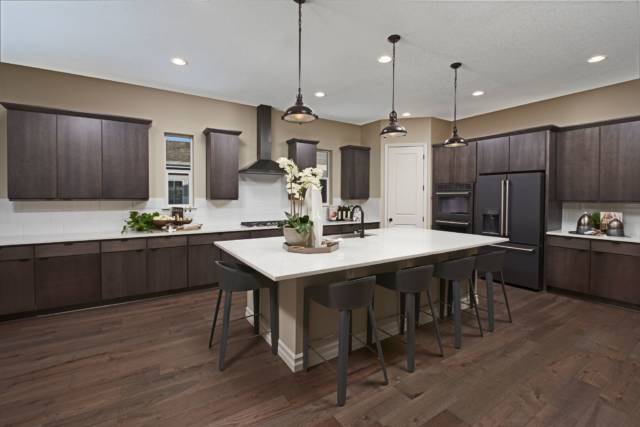 The kitchen and bathroom countertops in the brand new homes in the master-planned community of Crystal Valley ARE something to write home about. The word gorgeous comes to mind. And if you’re thinking about a move to one cool suburb, there’s never been a better time to buy a new home. Richmond American Homes, Kauffman Homes, Century Communities and D.R. Horton build a variety of ranch and two-story models — priced from the $300s. So come explore one or all 16 model homes set in natural surroundings and find the one that’s perfect for you!
The kitchen and bathroom countertops in the brand new homes in the master-planned community of Crystal Valley ARE something to write home about. The word gorgeous comes to mind. And if you’re thinking about a move to one cool suburb, there’s never been a better time to buy a new home. Richmond American Homes, Kauffman Homes, Century Communities and D.R. Horton build a variety of ranch and two-story models — priced from the $300s. So come explore one or all 16 model homes set in natural surroundings and find the one that’s perfect for you!


